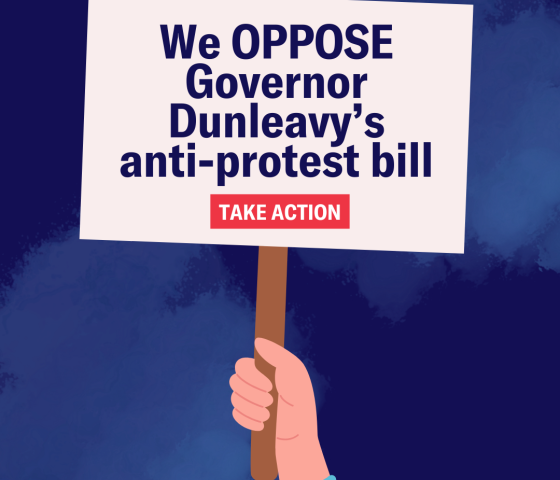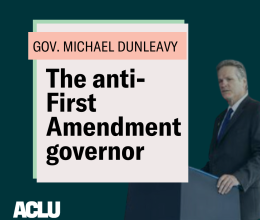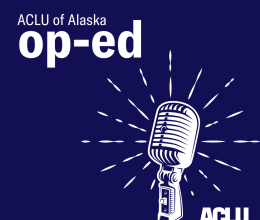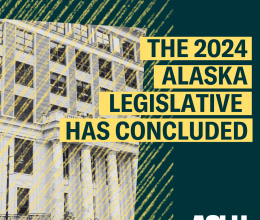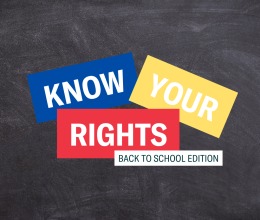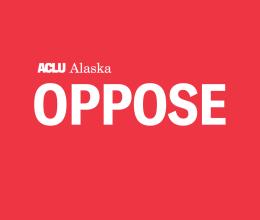In February 2024, Governor Dunleavy introduced legislation that would crack down on Alaskans' ability to protest, demonstrate, and freely assemble in public places.
HB 386/ SB 255 would criminalize Alaskans who exercise their freedom of speech and assembly. The bill would create the new crime of “obstruction of free passage in public places,” which is constitutionally problematic. The language would capture a broad range of activity and contains no exceptions for lawful speech and protest. It is a clear violation of the First Amendment and meant to scare Alaskans into silence.
The new “obstruction of free passage” crime also appears to criminalize homelessness in public spaces and could be used by law enforcement to target the unhoused. This is not a solution to Alaska’s housing crisis.
HB 386/ SB 255 would also increase penalties for obstruction of highways and trespassing when the action “creates a substantial risk of physical injury to another person” or “interferes with a firefighting, medical, or other emergency response.”
HB 386/ SB 255's vague language could be used to target disfavored speech and ideology. The new crime of “obstruction of free passage in public places.” would apply when a person “knowingly renders a public place impassable or passable only with unreasonable inconvenience or hazard.” There is no way for the state to neutrally apply this concept, which could be used to target politically disfavored speech and more questions than answers about what conduct is permissible in public.
The civil liability provisions in HB 386/ SB 255 would encourage frivolous litigation. The bill is wildly out of step with existing Alaska law and would create enormous judgments unrelated to actual losses.
The civil liability provisions are unconstitutional and overbroad. The legislation would hold individuals liable for damages, with no First Amendment defenses, for associating with a protest in almost any way – including aiding, encouraging, or authorizing conduct. For example, such broad language would allow a person to be held liable for sharing information about a protest or other protected First Amendment activity on social media, for example.
The bill would also allow a person anywhere in the world to be dragged into an Alaska court for nothing more than “encouraging a protest.” Such broad application of the bill’s provisions are likely unconstitutional and another illustration of the bill’s intent to chill speech.
HB 386/ SB 255 does not work to address a current issue within Alaska. This legislation does not make Alaskan’s safer, address a current problem for people protesting across the state, and sends a threatening message to protesters in order to chill free speech.
